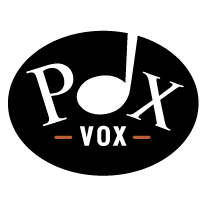Powerful Questions for Every Occasion
One of the best things I learned in my coaches' training program was how to formulate and use powerful questions. More than any other skill, this one has changed the way I have conversations, not only with co-workers, friends and family, but with myself, in how I talk to myself as a creator.
Brown Sparrow by Jammie Holmes
Powerful questions can take a variety of forms, but their general intention is to:
go deeper into a topic or to the root of an issue
focus on the person rather than the problem
set the table for possibility and invite expansive thinking
Messengers in the Wind by Rufino Tamayo
What makes a question powerful?
1. A powerful question is open-ended.It's not a yes/no question, and it's not a question that has one answer. It's also not a leading question, where the question hints at what the answer is supposed to be.
Leading question: Do you think it would be a good idea for you to get a full-time job?
Open-ended question: What are your options?
2. A powerful question invites reflection, not simply information.
Question for information: What happened?
Question for reflection: How do you feel about what happened?
3. A powerful question communicates curiosity with a tone of care rather than interrogation. Questions that begin with Why tend to put people on the defensive more than What or How questions do.
Potentially Interrogating Tone: Why does this matter to you?
Caring Curiosity Tone: What is important about this for you?
4. A powerful question encourages expansive thinking.Questions that encourage abundance thinking rather than scarcity thinking help others discover more possibilities, rather than going for a quick or obvious solution.
Restrictive thinking: What is the best use of your skills and time?
Expansive thinking: What kind of person do you want to become?
In a coaching session or a conversation, powerful questions aren't the only kinds of questions that are productive. For example, a leading question or a restrictive question can help provide focus to a situation where a person is needing help with narrowing down options.
That said, I've seen time and again how a powerful question can open up a person's thinking or feeling and enable them to cut to the root cause to an issue, or tap into their true values and needs. A well-timed powerful question can be a generous way to hold space for someone who wants to deeply explore a problem, a decision, or an important topic. And in my personal relationships, I have seen how taking the time to ask powerful questions within a conversation has built more trust, connection and closeness.
Photo of an unidentified girl, from the Portland Art Museum's recent exhibit Color Line: Black Excellence on the World Stage. The exhibit was originally part of an exhibit at the 1900 Paris Exposition by W.E.B. Du Bois, presenting photographs and data charts about African American life.
Posing powerful questions is an art form in itself, but it’s not always something you can plan for in advance of a conversation. Those who do it best are able to form them in response to what has been shared. They improvise as the conversation evolves. They use their intuitive listening and pose questions that get to the heart of the matter.
On SE 33rd Ave near Belmont, in Portland, OR.
Powerful Questions for Artists to Ask Themselves
Sometimes you're the only one in the room having a conversation. For artists of all types, there is solitary work to be done, to develop skills, to create something or to generate ideas.
In this scenario, it's easy for our self-talk to move into a critical tone that discourages us. "Why am I doing it this way?" "Why am I having such a hard time learning this song?" "Who is going to care about what I'm making anyway?"
This is where powerful questions can come to the rescue. They can spark our curiosity and remind us that we have several good choices.
The next time you're practicing, creating, or working on anything that is challenging, try asking yourself a few powerful questions. Here are a few possibilities to start with, but you will know best which questions will help you go deeper or move forward on the path:
What will happen if I try this?
What is important about this work?
What is it about this art form that attracts me?
What will happen if I don't do this work?
What am I really curious about right now?
What do I want to get out of doing this?
The Fury by Enrique Martínez Celada






